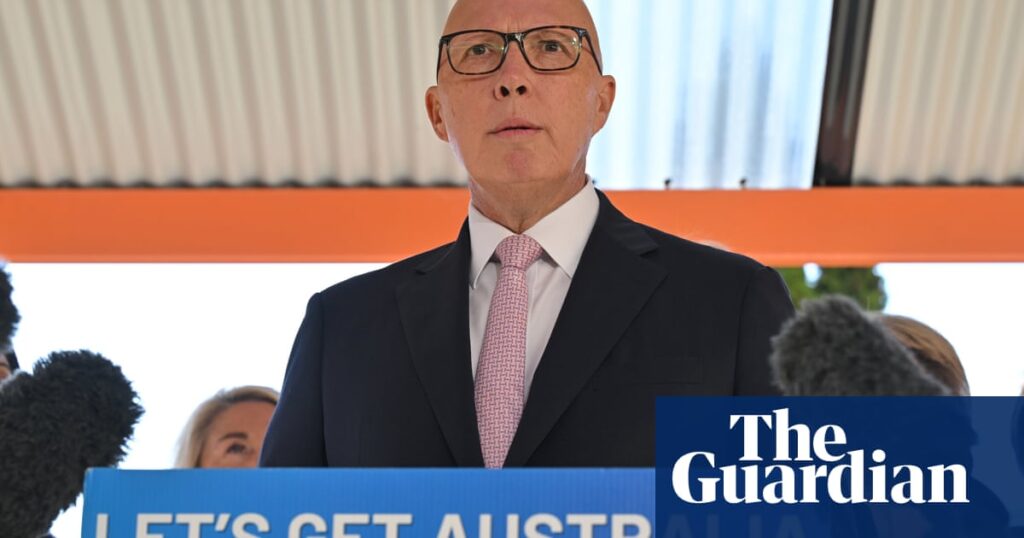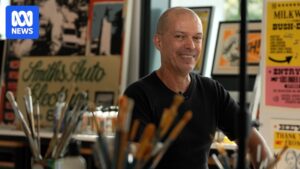
The federal opposition in Australia is signaling a significant shift in its approach to immigration, as the new shadow immigration minister, Paul Scarr, advocates for a more empathetic stance that highlights the positive contributions of migrants. This marks a departure from the previous hardline rhetoric under Peter Dutton, which was characterized by strict immigration policies and controversial statements.
Scarr, who also serves as the shadow minister for multicultural affairs, expressed concern over the loss of support from Chinese, Indian, and other diaspora communities in recent elections. He believes these communities’ values align with the Liberal Party’s core principles, making their departure a “profound tragedy.”
A New Direction for the Coalition
The announcement comes as political analyst Kos Samaras suggests that the Coalition must abandon its outdated approach to multicultural Australia to regain the trust of these communities. Samaras argues that the party has developed a reputation for being unwelcoming to recent migrants, a perception that has been detrimental to its electoral success.
“They have hard-baked a brand that they are not a political party that likes people who have come to the country over the past 15 or 20 years,” Samaras says.
Under Dutton’s leadership, the Coalition prioritized reducing permanent and net overseas migration, linking these issues to the housing supply and affordability crisis. However, with the party now led by Sussan Ley, there is a comprehensive review of its policies, and Scarr is committed to changing the tone of the immigration debate.
Past Controversies and Future Challenges
During his tenure, Dutton made several controversial statements, including proposing a temporary ban on people from Gaza and suggesting a referendum on deporting dual citizens who commit serious crimes. These actions have contributed to the party’s current challenges in rebuilding trust with multicultural communities.
Scarr emphasizes the importance of empathy in discussions about immigration, stating that the focus should be on the contributions of migrants rather than just numbers. He draws on his experience as a lawyer and his work in various countries to underscore the need for respectful and inclusive dialogue.
“One of the things I am passionate about is getting the tone of discussion right – I think that is of critical importance,” Scarr says. “And any discussion of immigration must proceed, in my view, on the basis of the contribution that’s been made to this country by so many people who have come to this country as migrants.”
Rebuilding Trust with Multicultural Communities
Multicultural communities, including Chinese voters, have shifted their support away from the Coalition in recent elections, favoring Labor in key seats. Scarr acknowledges the disconnect and stresses the need to rebuild trust by aligning with the values of these communities, such as reward for effort, individual freedoms, and the importance of family.
The task of regaining support is further complicated by political opponents who have capitalized on the Coalition’s past statements to tarnish its image. For instance, Labor highlighted a controversial claim about “Chinese spies” during the last election campaign, which resonated negatively with voters.
Expert Insights and Future Implications
Yun Jiang, from the University of Technology Sydney Australia-China Relations Institute, notes that the Liberal Party has traditionally appealed to Chinese migrants who are often socially conservative and entrepreneurial. However, she warns that regaining their support will require a significant shift in rhetoric, particularly concerning China.
“The Liberals’ [2022 election] postmortem said they need to be more mindful of language, but clearly, at the end of the last election campaign … they seemed to forget the lessons they had written down themselves,” she says.
Samaras, now with research firm RedBridge, believes it will take years for the Liberals to rebuild support among multicultural communities. This is crucial given the party’s reduced numbers in parliament and the rapid growth of these communities, especially in Melbourne’s outer suburbs.
“When we speak to them [voters in focus groups] and they walk through their values, which are all about wealth accumulation, aspiration, small business – these people should be, culturally, Coalition voters,” Samaras says. “But then we ask them why they are not, [and] their answer is pretty blunt: ‘They don’t like us’.”
Scarr accepts this assessment and is committed to changing perceptions. He emphasizes that every day leading up to the next election is an opportunity to recalibrate the party’s approach and rebuild connections with multicultural communities.
As the Coalition navigates this new direction, the coming months will be critical in determining whether its efforts to embrace a more inclusive and empathetic stance will resonate with voters and reshape its political fortunes.






